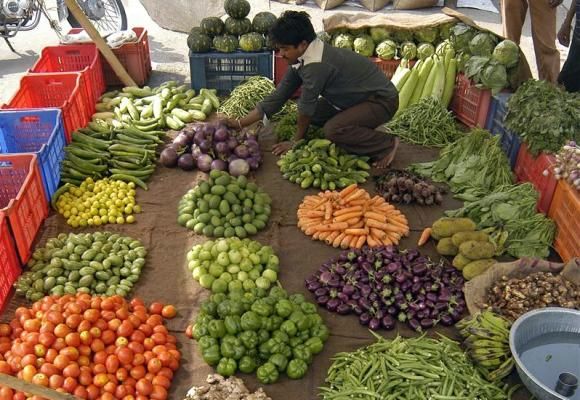 The Reserve Bank on Tuesday cautioned that continued uncertainty over monsoon could stoke food inflation, but expressed the hope that government policies will improve supplies in the coming months.
The Reserve Bank on Tuesday cautioned that continued uncertainty over monsoon could stoke food inflation, but expressed the hope that government policies will improve supplies in the coming months.
"...with some continuing uncertainty about the path of the monsoon, it would be premature to conclude that future food inflation, and its spill-over to broader inflation, can be discounted," said the RBI's monetary policy review.
Retail inflation, measured by the consumer price index (CPI), has eased for the second consecutive month in June, with a broad-based moderation accompanied by deceleration in momentum.
RBI said it will continue to closely monitor developments related to the price rise, and remains committed to the disinflationary path of taking CPI inflation to 8 per cent by January 2015 and 6 per cent by January 2016.
"It is, therefore, appropriate to continue maintaining a vigilant monetary policy stance as in June, while leaving the policy rate unchanged," the central bank added.
RBI added however that the balance of risks around the medium-term inflation path, and especially the target of 6 per cent by January 2016, are still to the "upside".
"In the months ahead, government actions on food management and to facilitate project completion should improve supply, but as consumer and business confidence pick up, aggregate demand will also strengthen," RBI said, adding that it will act as necessary to ensure sustained disinflation.
Among other steps for reforms in the food sector, the new government has announced restructuring of Food Corporation of India (FCI), reducing transportation and distribution losses and efficacy of PDS would be taken up on priority
The CPI inflation dropped to 8.28 per cent in May and 7.31 per cent in June, from a high of 8.59 per cent in April.
The moderation in CPI for two consecutive months, despite the seasonal firming up of prices of fruits and vegetables since March, is due to both base-effect and the steady deceleration in the index excluding food and fuel.
RBI further said that the recent fall in international crude prices, the benign outlook on global non-oil commodity prices and still-subdued corporate pricing power should all support continued disinflation, as should measures undertaken to improve food management.
It said that there are upside risks also, in the form of the pass-through of administered price increases, possibly higher oil prices stemming from geo-political concerns and exchange rate movement, and strengthening growth in the face of continuing supply constraints.









